physicians
E.B. Foote
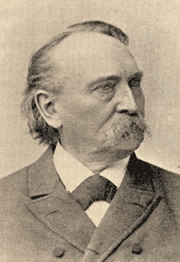
On this date in 1829, reformer Edward Bliss Foote was born in Cleveland, Ohio. He was brought up in a conforming Presbyterian household. Foote was a physician with a hand in the newspaper business, publishing the first newspaper in New Britain, Conn. Becoming a Unitarian, then an agnostic, he befriended D.M. Bennett, publisher of The Truth Seeker. Foote was the only foe of the first Comstock bill, which was introduced in the New York legislature in 1872, and passed despite his efforts.
The repressive Comstock Act was soon adopted by Congress, creating censorship of the press through postal regulations. Comstock went after his early foe in 1874, charging Foote with violating postal laws for mailing an educational pamphlet advocating the right of families to limit their size through “contraceptics.” He was fined $3,500 by Judge Benedict of the U.S. Circuit Court of the Southern District of New York in 1876.
Foote helped to organize the National Defense Association seeking repeal of the Comstock laws and aided other Comstock victims. He worked actively within medical societies and at the state legislature to oppose the legitimization of Christian scientists and faith healers. A lifelong advocate of woman’s suffrage, he sent a check of $25 to Susan B. Anthony when she was fined $100 for voting in the 1872 presidential election. He was a member of numerous freethought and professional groups. His son Edward Bond Foote also became a physician and freethinker. (D. 1906)
Jean Astruc
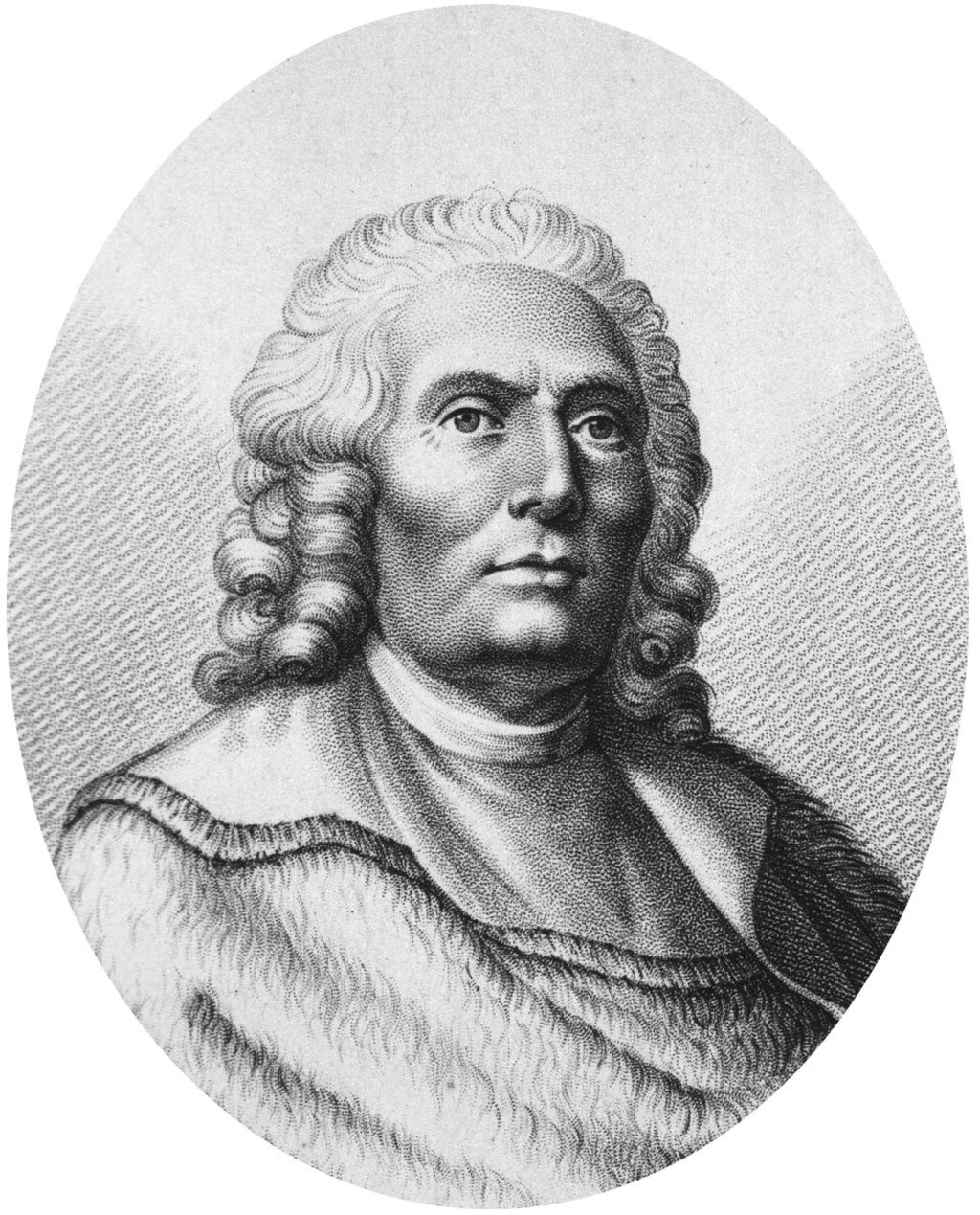
On this date in 1684, Jean Astruc was born in France, the son of a Protestant minister who converted to Catholicism. Astruc, who became a physician, was one of the early founders of bible criticism. He served as professor of anatomy at Toulouse, then Montpellier, and later as professor of medicine at Paris. In 1753 he published his Conjectures.
Astruc was among the first to try to show that the Book of Genesis was based on several sources or manuscript traditions, an approach now called the documentary hypothesis. According to historian J.M. Robertson, he died without the sacraments. (D. 1766)
—
Ludwig Buchner
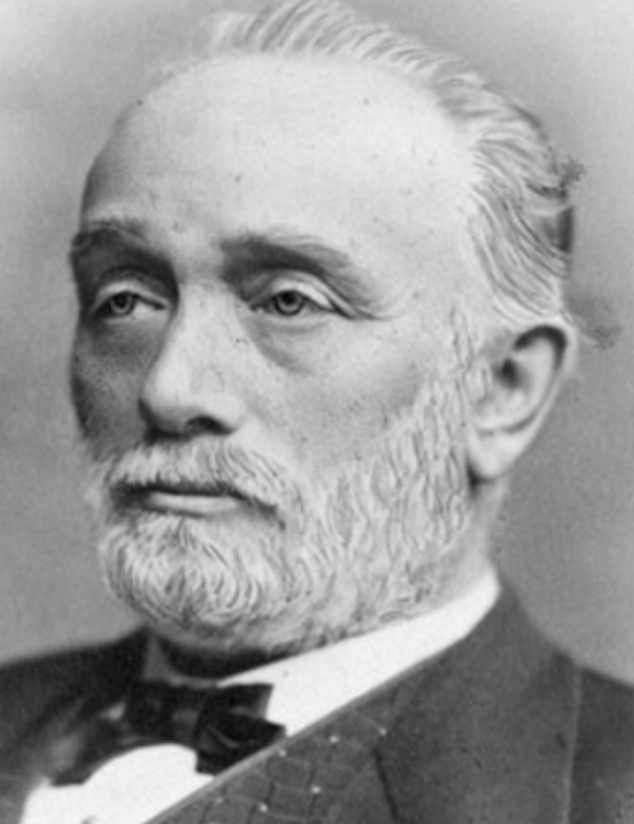
On this date in 1824, German physician and philosopher Friedrich Karl Christian Ludwig Buchner was born in Darmstadt, Germany. His father was a physician. Two of his five siblings, writer and playwright Georg and literary historian Alexander, were also freethinkers. His other siblings were Mathilde, the novelist Louise and Wilhelm, a factory owner and parliamentarian. He was educated at the Universities of Giessen, Strassburg, Wurzburg and Vienna. After earning his medical doctorate with honors from Gissen in 1848, he taught medicine at Tubingen University. In 1855 he published his most famous work, Kraft und Stoff (Force and Matter).
This book, because of its scientific, atheistic and rationalist ideas, caused his dismissal at Tubingen, and thus he began practicing medicine in Darmstadt. Force and Matter “made a bold attempt at transforming the then prevailing theory of the world which was based on theological philosophy, and adapting it to the requirements of modern science.” (Preface to Force and Matter, 1855.)
Buchner wrote numerous articles and books, including Nature and Spirit, The Soul of Animals, Man’s Place in Nature, The Idea of God, Darwinism and Socialism and The Influence of Heredity. Considered one of the fathers of scientific materialism in Germany, he traveled and lectured widely, including in the U.S. An obituary in the journal Science by the American Association for the Advancement of Science said: “Buchner was well known for his series of popular works on physical science and the theory of evolution, as well as for numerous contributions to physiology, pathology and other sciences.” (Vol. 9, January-June 1899.)
“[Buchner’s] philosophic and scientific writings entitle him to a foremost place in the gallery of great men who have led the human race out of the bondhouse of superstition to the promised land of reason.” (George Seibel in “Thomas Paine in Germany,” from The Open Court, Vol. 34, January 1920.) (D. 1899)
“If God is in us all and is the soul of the world, then he must directly partake of all our wickedness and imperfections. … In one man he does good, while in another he works evil and contends against his own laws. … But enough of all this nonsense!”
— Buchner, "Force and Matter" (1855)
Thomas Beddoes
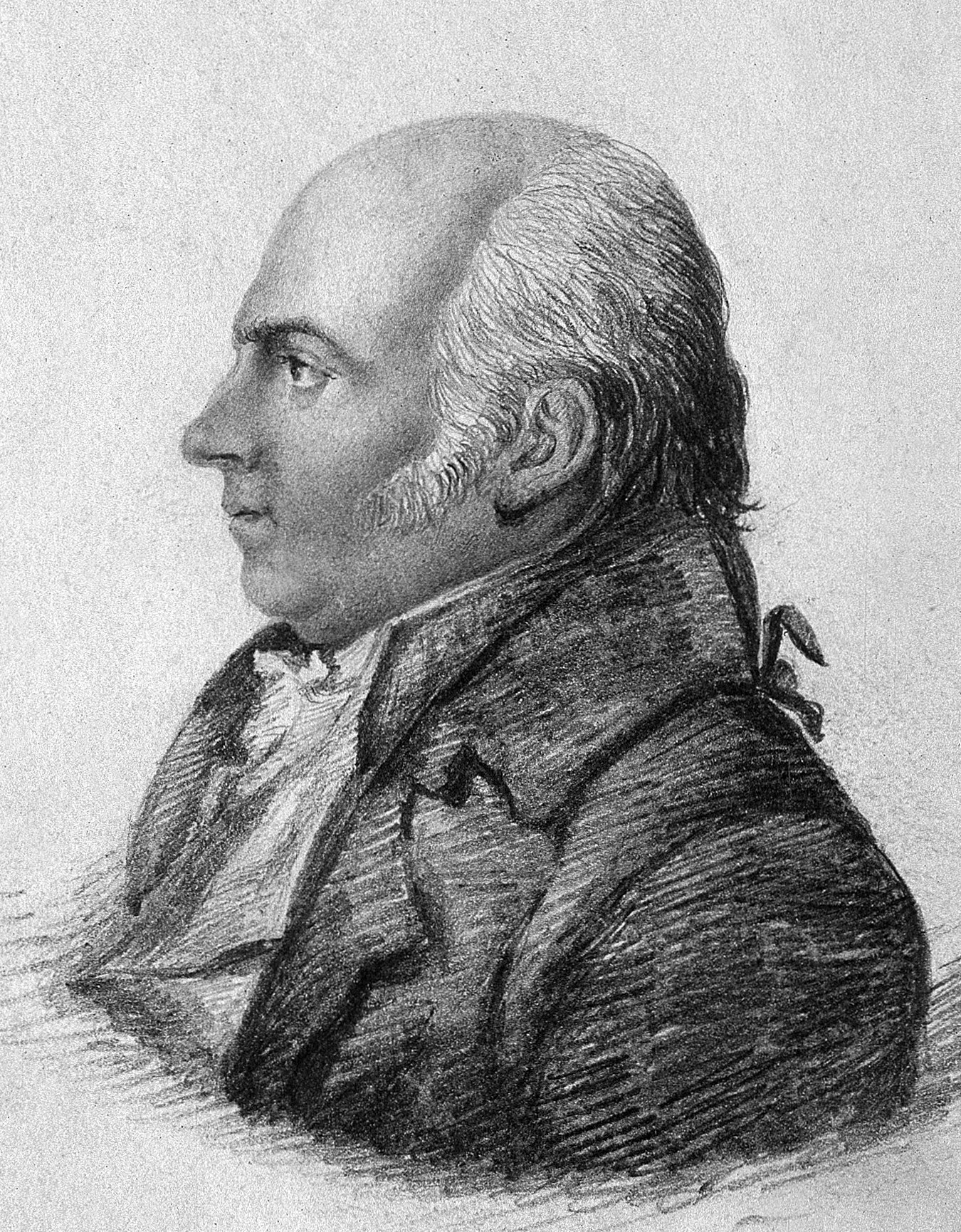
On this date in 1760, physician and scientific writer Thomas Beddoes was born in Shifnal, England. He attended Bridgnorth Grammar School for his secondary education before moving to Oxford, where he attended Pembroke College, a constituent of the University of Oxford.
Upon completing his undergraduate studies, Beddoes enrolled in the University of Edinburgh Medical School, where he was taught chemistry and medicine. He met his wife Anna while working at the Bristol Pneumatic Institution, a medical research facility searching for a cure to tuberculosis. They had one son, Thomas Lovell Beddoes, who became a well-known British poet and playwright.
In 1788, the University of Oxford appointed Beddoes professor of chemistry. He taught at the school for six years during the French Revolution before resigning. During this time, his lectures made radical medical claims that drew attention from large audiences. Beddos hoped to extend Joseph Priestley‘s ideas on treating disease by the therapeutic inhalation of different gases and vapors. He contributed significantly to the British Enlightenment, but left Oxford after recognizing that his ideas were not welcomed by all.
Beddoes stressed the importance of imagination as it arises from one’s senses and criticized the use of religious maxims as teaching material. He believed that the source of children’s knowledge should come from learning natural history and studying natural objects themselves. He also speculated that our religious beliefs are a product of our environment and governance. (D. 1808)
"Man created a God, a Heaven and a Hell."
— "Thomas Beddoes M.D. 1760–1808: Chemist, Physician, Democrat" by D.A. Stansfield (2012)
Thomas Huxley
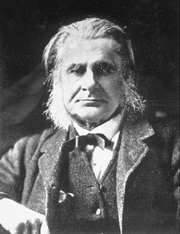
On this date in 1825, Thomas Henry Huxley was born in England. Huxley coined the term “agnostic” (although George Jacob Holyoake also claimed that honor). Huxley defined agnosticism as a method, “the essence of which lies in the rigorous application of a single principle … the axiom that every man should be able to give a reason for the faith that is in him.” Huxley elaborated: “In matters of the intellect, follow your reason as far as it will take you, without any other consideration. And negatively, in matters of the intellect do not pretend that conclusions are certain which are not demonstrated or demonstrable.” (From his essay “Agnosticism.”)
Huxley received his medical degree from Charing Cross School of Medicine, becoming a physiologist. He had spent his youth exploring science, especially zoology and anatomy, lecturing on natural history and writing for scientific publications. He was president of the Royal Society and was elected to the London School Board in 1870, where he championed a number of common-sense reforms.
Huxley earned the nickname “Darwin’s Bulldog” when he debated Darwin’s On the Origin of Species with Bishop Samuel Wilberforce in Oxford in 1860. When Wilberforce asked him which side of his family contained the ape, Huxley famously replied that he would prefer to descend from an ape than a human being who used his intellect “for the mere purpose of introducing ridicule into grave scientific discussion.”
Thereafter, Huxley devoted his time to the defense of science over religion. His essays included “Agnosticism and Christianity” (1889). His three rationalist grandsons were biologist Sir Julian Huxley, novelist Aldous Huxley and Henry Fielding Huxley, co-winner of a 1963 Nobel Prize. Huxley, appropriately, received the Darwin Medal in 1894. (D. 1895)
"Skepticism is the highest duty and blind faith the one unpardonable sin."
— Huxley, "Essays on Controversial Questions" (1889)
Jack Kevorkian
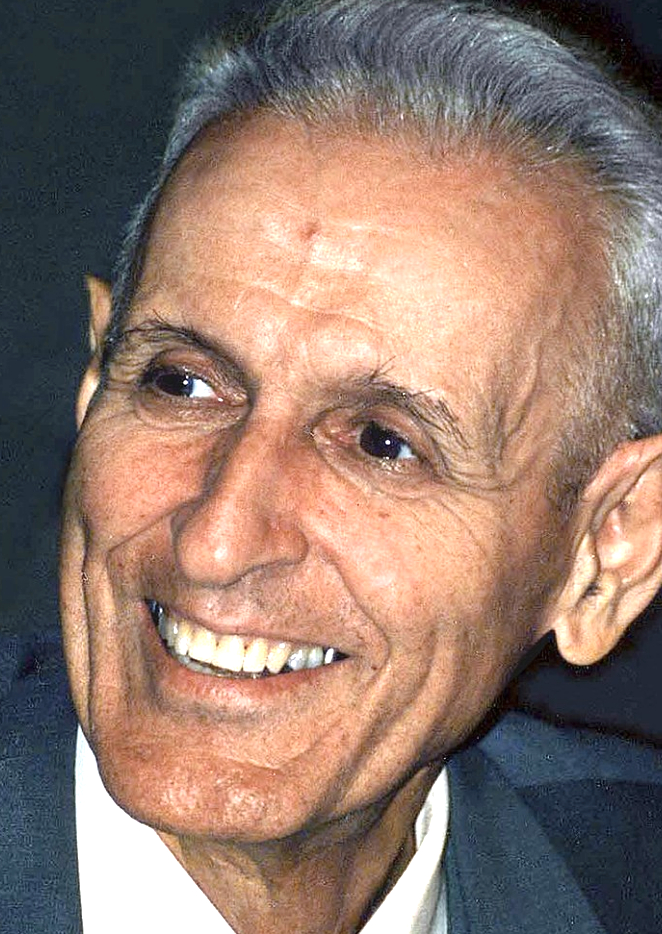
On this date in 1928, Murad Kevorkian, later known as Jack, was born to Armenian immigrants in Pontiac, Mich. “My parents never foisted religion on me. My father never was religious much. My mother was — the old country religion. But not fanatic. But I never believed in God. I never believed in Santa Claus.” (Interview with Neil Cavuto on Fox News, Sept. 2, 2009.)
He earned his M.D. from the University of Michigan in 1952 and later specialized in pathology. He wrote a series of articles in the 1980s for the German journal Medicine and Law, detailing his reasoning on the ethics of euthanasia. His first known assisted suicide occurred in 1990, and the state of Michigan revoked his medical license a year later as a result. Believing that the right to die was not a crime, Kevorkian assisted in the pain-free suicides of more than 130 people with terminal illnesses.
He spent eight years in prison (out of a 10- to 25-year sentence) after being convicted of second-degree murder for one of these suicides. He was released on parole in 2007, on the condition he would not help anyone else commit suicide.
Kevorkian maintained that his harshest critics were “religious fanatics or nuts.” (“Kevorkian Speaks After His Release From Prison,” N.Y. Times, June 4, 2007.) In his keynote address at the 1990 Freedom From Religion Foundation annual convention, Kevorkian said, “Religion is telling law what to do, and law is telling doctors what to do. Religion dictates to law, and law dictates to ethics. No wonder we have problems. That’s insanity!”
He described the history of euthanasia and abortion as standard procedures in the secular medical world until Christianity injected its influence on the profession several centuries later. He described this shift as “the origin of all the crises we’re having.” In an interview on FOX News, when asked how he wanted to be remembered, Kevorkian responded: “Doesn’t matter. Doesn’t matter at all. When I’m dead, nothing matters.” (Sept. 2, 2009)
He told the Jackson Citizen in 1990: “My aim is to establish a rational policy of planned death. … We have no planned death. We have no policy, and it’s not rational. I want to fight suffering and eliminate it.” (D. 2011)
PHOTO: Kevorkian at the National Press Club in 1996; Kingkong photo under CC 2.0.
“If a doctor has a certain philosophic principle, religion or otherwise, that limits what he or she can do or say for the benefit of the patient, then he’s not a full doctor. … A real doctor could divorce professional life from spiritual life.”
— Kevorkian, keynote address to FFRF's national convention (Oct. 6, 1990)
A. Stone Freedberg
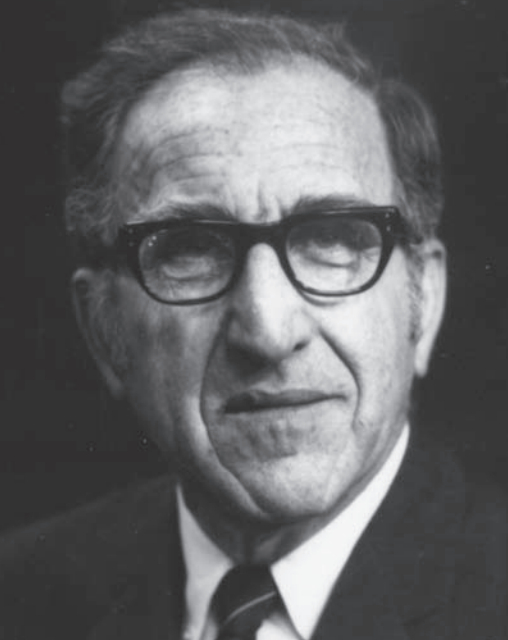
On this date in 1908, Abraham Stone Freedberg was born in Salem, Mass. Freedberg attended Harvard College and the University of Chicago Medical School (graduating in 1934). A professor at Harvard who taught medical students physical diagnosis techniques, Freedberg also became chairman of cardiology and internal medicine at the Harvard-affiliated Beth Israel Deaconess Medical Center. As a professor and member of the admissions committee, he set out to help disadvantaged students navigate the admissions process at the medical school.
Until Freedberg invented a treatment in the late 1940s involving a radioactive iodine technique, patients with severe angina had no way to relieve their pain. In 1940 he was started studying ulcers, but his findings were not confirmed until 1983 by two Australian scientists, who would each win a Nobel Prize in 2005 for those findings. It has been confirmed by medical scientists that if Freedberg’s findings had been recognized earlier, treatments for ulcers would have been available decades sooner.
Freedberg later became a critic of doctors relying too heavily on technologically advanced testing methods, preferring the less expensive and, to him, more reliable practice of physical diagnosis. He stopped practicing medicine in his mid-90s.
Freedberg, who attended 100 classical music concerts in his 101st year, was an atheist. According to The New York Times, in Freedberg’s last days, he assessed his body and said there were no prospects “of a significant improvement in my basic status. … It is time to draw the curtain.” He died in his sleep at home in Boston at age 101. The Times obituary called him “an avowed atheist.” (D. 2009)
“He always said that he just wanted to go to sleep and not wake up. He said to us, 'It's time,' and he went to sleep.”
— Freedberg's son Richard, quoted in "A. Stone Freedberg, 101, Harvard med school professor" (Boston Globe, Aug. 24, 2009)
Wafa Sultan
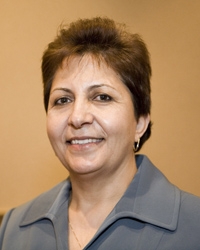
On this date in 1958, Wafa Sultan was born in Banias, Syria. Sultan received her degree in medicine at the University of Aleppo, where she says she lost her faith in Islam after seeing one of her professors gunned down by the Muslim Brotherhood. In 1989 she and her husband emigrated to Los Angeles with their children.
Sultan has written essays critical of Islam, some published on the reform website Annaqed (The Critic). In 2005, Sultan gained notoriety for her appearance on Al Jazeera debating a Muslim cleric and asking, “Why does a young Muslim man, in the prime of life, with a full life ahead, go and blow himself up? In our countries, religion is the sole source of education and is the only spring from which that terrorist drank until his thirst was quenched.”
In 2009 she published her first book in English, A God Who Hates: The Courageous Woman Who Inflamed the Muslim World Speaks Out Against the Evils of Islam. She describes herself as a cultural Muslim. In 2006 she received FFRF’s Freethought Heroine Award.
“I receive too many emails from women in the Islamic world, telling me: ‘Go ahead, we are behind you,’ but unfortunately they’re afraid for their lives.”
— Sultan, speaking to FFRF's 2006 national convention
Michael Newdow
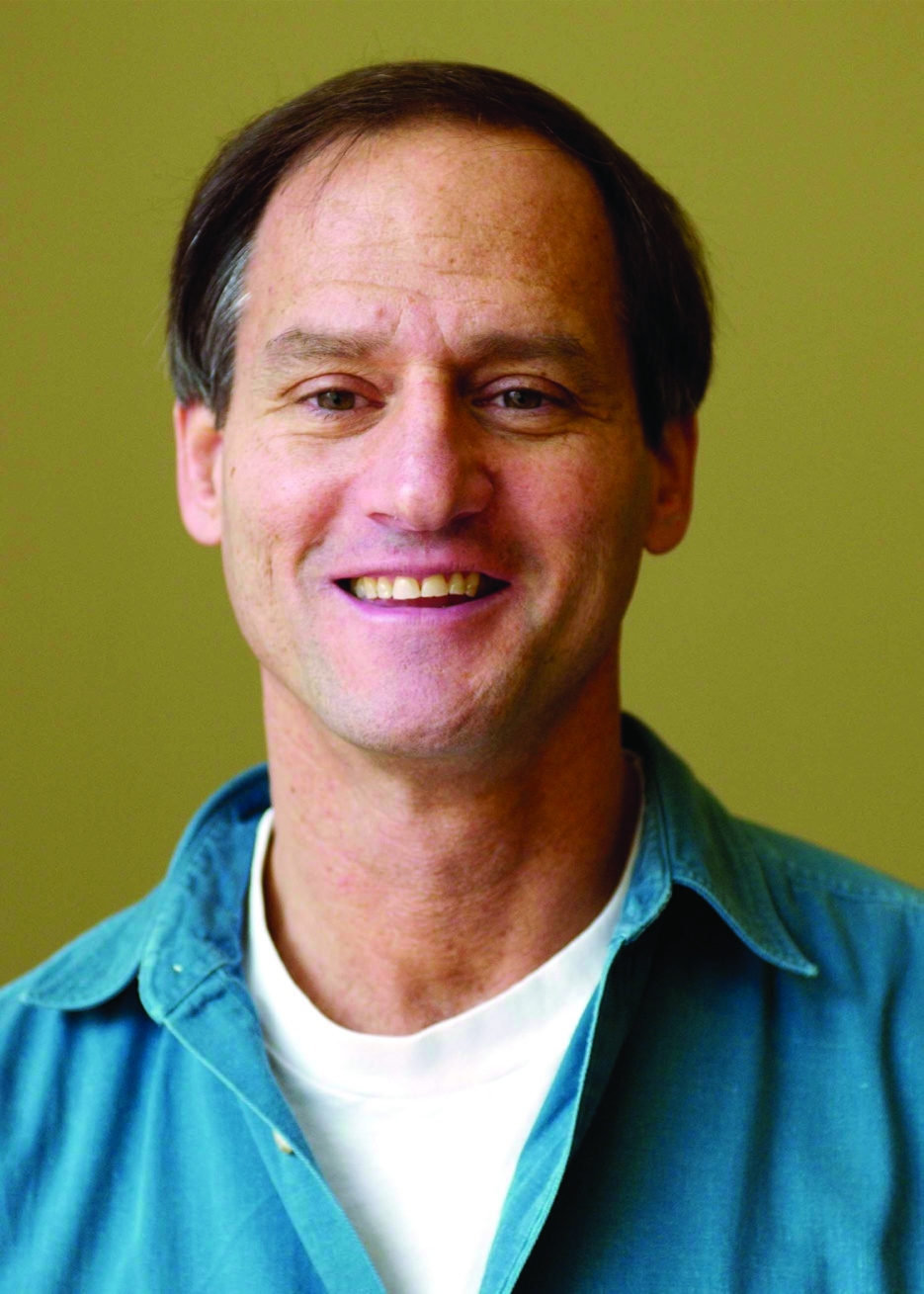
On this date in 1953, Michael Arthur Newdow, an attorney and emergency room physician, was born to nominally Jewish parents. He grew up in the Bronx, N.Y., and Teaneck, N.J., and earned a B.S. in biology from Brown University. In 2004 he told Brown’s alumni magazine that “I was born an atheist.” He graduated from UCLA’s medical school in 1978 and earned a law degree from the University of Michigan in 1988. In 1977, he was ordained as a minister in the Universal Life Church, based in Modesto, Calif., a “church” which has but one basic tenet: “Do only that which is right.”
In 1997 he formed an organization called FACTS (First Atheist Church of True Science), which advocates for a strong wall between state and church. Newdow has filed several lawsuits challenging the mingling of religion and government. One, Elk Grove Unified School District v. Newdow, was argued before the U.S. Supreme Court in 2004. The issues at hand: Whether a public school district policy that required teachers to lead students in reciting the Pledge of Allegiance, which included the words “under God,” was a violation of the Establishment Clause of the First Amendment, and whether Newdow had legal standing on behalf of his daughter to challenge the policy.
The 9th Circuit U.S. Court of Appeals ruled in his favor in 2002 that “under God” in school pledges was unconstitutional. Circuit Judge Alfred T. Goodwin, a 79-year-old Nixon appointee, famously wrote: “A profession that we are a nation ‘under God’ is identical to a profession that we are a nation ‘under Jesus,’ a nation ‘under Vishnu,’ a nation ‘under Zeus,’ or a nation ‘under no god.’ ”
The appeals court ruling was appealed to the Supreme Court, which ruled 5-3 that Newdow didn’t have standing in the case because he didn’t have sufficient custody over his daughter, whose mother had primary custody. “No one who managed to get a seat in the courtroom is likely ever to forget his spellbinding performance,” New York Times court reporter Linda Greenhouse said of Newdow’s oral argument.
What he saw as unconstitutional endorsement of religion led Newdow to file other suits, including one to remove “In God We Trust” from U.S. coins and currency and others to block religious invocations at presidential inaugurations, use of “so help me God” when administering the oath of office and use of official chaplains in Congress. FFRF named Newdow its Freethinker of the Year in 2002 and a Freethought Hero in 2004.
“Mr. Chief Justice, and may it please the Court:
Every school morning in the Elk Grove Unified School District’s public schools, government agents, teachers, funded with tax dollars, have their students stand up, including my daughter, face the flag of the United States of America, place their hands over their hearts, and affirm that ours is a nation under some particular religious entity, the appreciation of which is not accepted by numerous people, such as myself. We cannot in good conscience accept the idea that there exists a deity.
I am an atheist. I don’t believe in God. And every school morning my child is asked to stand up, face that flag, put her hand over her heart, and say that her father is wrong.”
— Newdow's oral argument to the U.S. Supreme Court, March 24, 2004 (The Oyez Project)
Taslima Nasrin
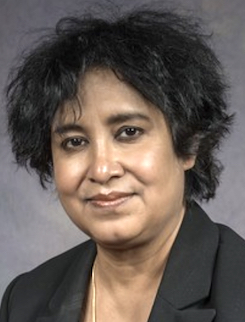
On this date in 1962, freethinker, atheist and feminist Taslima Nasrin was born in Mymensing, Bangladesh, to a Sufi physician and a devoutly religious mother. Nasrin later became the target of a series of fatwas, or religious sanctions, condemning her to death for blasphemy.
“I came to suspect that the Quran was not written by Allah but, rather, by some selfish, greedy man who wanted only his own comfort,” Nasrin explained in her speech accepting a Freethought Heroine Award at the 25th annual FFRF convention in 2002. “So I stopped believing in Islam. When I studied other religions, I found they, too, oppressed women.” She has often stated, “Religion is the great oppressor, and should be abolished.”
Nasrin earned an MBBS degree in 1984 and worked in gynecology and anesthesiology departments in medical colleges and universities. Her books of poetry began being published in the late 1980s, then she started writing popular columns on women’s rights in newspapers and magazines, which were collected in book form. In 1992, she received the prestigious Indian literary award “Ananda” for her book of essays. Nasrin reports that Islamic fundamentalists started campaigns against her by 1990, with demonstrations escalating over the next few years, including having her books burned at the national book fair.
When the novella “Shame” came out in 1993, about the plight of Hindus under Muslim order, it was banned, she was attacked at the national book fair, the first of three fatwa was issued, and a bounty on her head was offered. The Bangladeshi government brought criminal charges against her for defaming the Muslim faith the following year. Thousands in Bangladesh demonstrated regularly, sometimes daily, demanding her death. After a terrifying two months in hiding, and fearing the fate of Hypatia, Nasrin fled Bangladesh, seeking refuge in Sweden.
In a 1994 interview with The New Yorker, she said, “I want a modern, civilized law where women are given equal rights. I want no religious law that discriminates, none, period — no Hindu law, no Christian law, no Islamic law. Why should a man be entitled to have four wives? Why should a son get two-thirds of his parents’ property when a daughter can inherit only a third?”
Nasrin, a “woman without a country,” has also lived in France, the U.S. and Germany, living, for the most part, in India.
Among the dozens of awards and honorary doctorates she has received is the Sakharov Prize (1994). In addition to receiving FFRF’s 2002 Freethought Heroine Award, she was the recipient in 2015 of its Emperor Has No Clothes Award and said, “Islam is not compatible with human rights, women’s rights, freedom of expression and democracy.” She has continued to lecture, speak out and write, including a multi-book autobiography.
PHOTO: Nasrin at FFRF’s national convention in 2015; Ingrid Laas photo.
“There has always been a marked conflict between religion and science, and every time science emerges as the winner, as science bases itself on facts, not faith. It supports what is tested and is true and truth cannot be hidden by lies for a very long time. To abolish all kinds of hypocrisy from my country, we need more atheists to speak the truth.”
— Nasrin, accepting the Emperor Has No Clothes award in 2015
Alfred Naquet
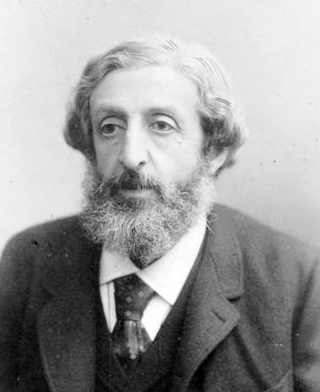
On this date in 1834, physician and politician Alfred Joseph Naquet was born in France. After obtaining a medical degree, he studied chemistry and was a professor of chemistry at Palermo from 1863 to 1866. He was sentenced to 15 months in prison upon his return to Paris when he propounded radical Garibaldian views. After Naquet’s book Religion, Propriete, Famille (Religion, Property, Family) was published in 1869, he was returned to prison for four months and fined 500 francs.
Naquet sought refuge in Spain but after the Revolution of 1870 returned to France. He served in the Chambre from 1871-82, championing the cause of divorce reform (divorce had been abolished in France in 1816). He ultimately saw passage of his bill for a rational divorce law as a senator, the achievement for which he is largely remembered. (D. 1915)
Lakshmi Sahgal
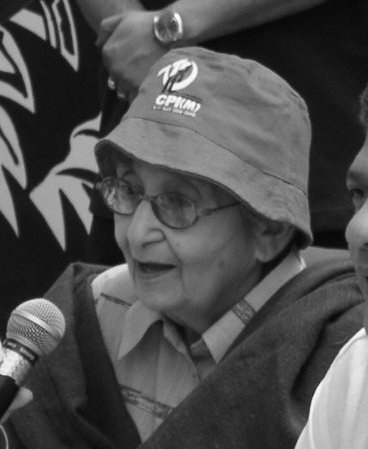
On this date in 1914, revolutionary Lakshmi Sahgal, née Lakshmi Swaminathan, was born in Madras, India. She studied medicine at Madras Medical College and graduated in 1938. In 1940 she opened a medical clinic for poor Indian migrant laborers in Singapore. When Japan began occupying Singapore in 1942, Sahgal used her medical skills to helped wounded Indian prisoners of war. When the Indian nationalist leader Subhas Chandra Bose arrived in Singapore to form the Indian National Army to fight for Indian independence from the British, Sahgal met with him to see how women could be included in the movement.
Sahgal created and trained the only all-female military unit in Singapore, called the Rani of Jhansi regiment. The regiment was never used in combat and the women in the unit mainly worked as nurses. The British military later arrested Sahgal, who was a captain in the Indian National Army. She was in prison for less than a year. The British chose to release her because of anti-British sentiment in India.
Sahgal continued to practice as a doctor, undercharging her mostly poor patients. In 1971 she joined India’s communist party and became an active voice in Indian politics. She was elected to India’s upper house of parliament in 1971 and unsuccessfully ran for president on a platform of equality in 2002. She was a supporter of women’s rights and education and advocated for ending the practice of dowries, child marriages and allowing widows to remarry.
Sahgal married a fellow army officer, Prem Kumar Sahgal, in 1947. They were married until his death in 1992 and had two children. Sahgal died in 2012 at age 97.
"I have always been an atheist. My parents were atheists. It doesn’t bother me if somebody is religious. My problem is when religion is used to institutionalize other things."
— Sahgal's daughter Subhasini Ali, politician and labor activist, Rediff.com interview (Aug. 8, 2001)
Michael Servetus (Executed)
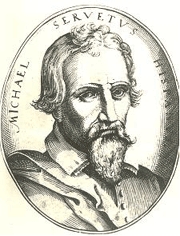
On this date in 1553, Spanish physician Michael Servetus, né Miguel Serveto, was executed for heresy in Geneva, Switzerland. Born in 1511, Servetus grew up near Aragon and studied law at the University of Toulouse in France, where he first read the bible, only newly available in printed form. Struck by the absence of mention of the trinity in the bible and repelled by the excesses of the Catholic Church, he turned to Protestantism. Its proponents also cast him out for his views.
In Paris he met a young student, John Calvin, who at one time was forced himself to go into hiding for heresy. Servetus studied medicine at the University of Paris, where he published the first work accurately describing pulmonary circulation. He practiced medicine for 12 years in Vienne, France. In 1546 he started a fateful, heated correspondence on the trinity with Calvin, who wrote a colleague that if Servetus should ever visit Geneva, “if my authority is of any avail I will not suffer him to get out alive.”
Servetus published Christianismi Restitutio (The Restoration of Christianity) under a pseudonym in 1553, including 30 of his letters to Calvin. In it he rejected original sin and salvation, vicarious atonement and Christ’s dual nature. When he sent Calvin a copy, Calvin exposed Servetus’ identity to the Catholic Inquisition in Vienne. Arrested and interrogated, he escaped from prison but was arrested in Geneva while traveling to Italy.
The Protestant Council of Geneva convicted him of anti-trinitarianism and opposition to child baptism. Calvin lobbied for a beheading but the council sentenced him to be burned at the stake, where he was burned alive at age 42 atop a pyre of his own books on Oct. 27, 1553.
“In the Bible, there is no mention of the Trinity.”
— Servetus, "On the Errors of the Trinity" (1531)
Narendra Dabholkar
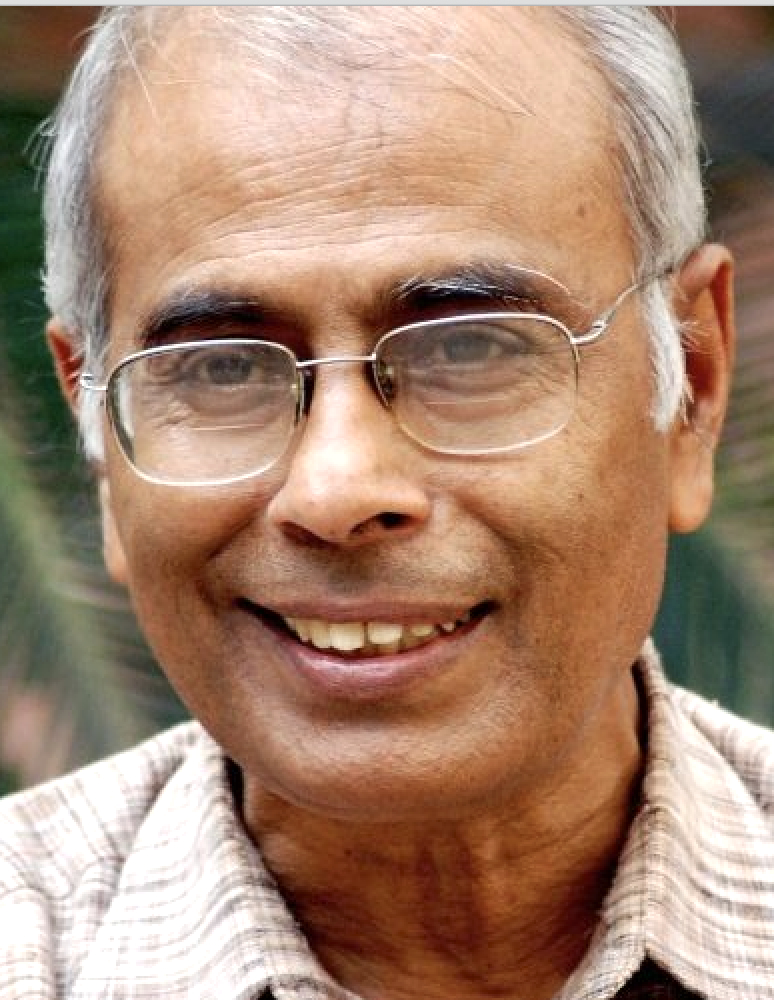
On this date in 1945, Dr. Narendra Dabholkar, an atheist and rationalist assassinated for his anti-superstition activism, was born in Satara, Maharashtra state, India. The youngest of 10 children, Dabholkar was remarkably multifaceted. He was a physician, prolific writer and international level athlete who represented India in the game of kabaddi.
After practicing medicine for a dozen years, his involvement in social work started in the 1980s and gradually focused on the harm done by organized religion. In 1989 he founded the Maharashtra Andhashraddha Nirmoolan Samiti (Committee for the Eradication of Superstition).
He became well known for public criticism of godmen (self-proclaimed demigods and charlatans with cult followings) and for anti-superstition drives in his home state of Maharashtra. The state includes Mumbai and has more than 120 million people. He was also the author of several books advocating rationalism and a scientific outlook.
Dabholkar refused police protection despite being constantly targeted with death threats and even assaults. He was murdered at age 67 on Aug. 20, 2013, in the city of Pune while on a morning walk. Although one of the two gunmen was caught, the masterminds, allegedly belonging to a fringe Hindu nationalist group, are still at large. His assassination was the first in a series claiming the lives of four freethinkers in that region, as of this writing in 2022.
Dabholkar was occupied in his final days working on an anti-superstition bill titled “Anti-Superstition and Black Magic Ordinance,” which became law four days after his murder. The next year, the Indian government posthumously awarded him one of its top civilian honors, the Padma Shri. The date of his assassination, Aug. 20, is now observed as National Scientific Temper Day in his memory.
FFRF honored the Maharashtra Andhashraddha Nirmoolan Samiti and Avinash Patil, its head at the time, with the Avijit Roy Courage Award at its 2019 convention. Dabholkar was close friends with Amol Palekar and Shriram Lagoo, two actors who are Indian legends and are included in FFRF’s freethinking pantheon. (D. 2013)
"Scientific thinking is purely logical: the adjective 'rational' cannot be applied to it. Scientific temperament is a process of thinking, method of action, search of truth, wayof life, spirit of a freeman."
“When a so-called spiritual man amasses riches in billions, feasts on scrumptious meals, wears expensive silk clothes, and resides in an ivory tower, seeking the company of glamorous women, the contradiction in his life is obvious.”
— QUOTE 1: "The Case for Reason: Understanding the Anti-Superstition Movement, Vol. 1" (English translation, 2018) QUOTE 2: "The Case For Reason: A Scientific Enquiry into Belief, Vol. 2" (English translation, 2019)
